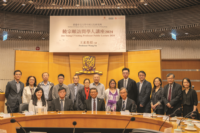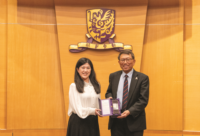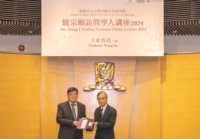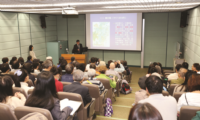Prof. Wang has been devoted to the compilation and research of unearthed texts, as well as the study of the Forbidden City. He was involved in or in charge of the compilation of several unearthed texts, including Tulufan chutu wenshu (Documents Unearthed in Turpan), Xin Zhongguo chutu muzhi (Funerary Inscriptions Unearthed in New China), Changsha Dongpailou Donghan jian du (Changsha Dongpailou Eastern Han Bamboo Slips), Changsha Zoumalou Sanguo Wu jian (Changsha Zoumalou Sanguo Wu Bamboo Slips), and Gugong bowuyuan cang Yinxu jiaguwen (Collection of Oracle-Bone Inscriptions of Yin Ruins at The Palace Museum). The first four works mentioned above received the National Book Award and the Chinese Government Award for Publishing, which rendered Prof. Wang the scholar with the most national-level book awards and the widest range of work in the field of unearthed text compilations across the country. Among his nineteen monographs, Gaochang shigao: Tongzhi bian (A Draft History of the Gaochang Kingdom: Section on Governance) and Gaochang shigao: Jiaotong bian (A Draft History of the Gaochang Kingdom: Section on Transportation) fill gaps in the writing of local dynastic history in China.
During his two-week visit, Prof. Wang delivered two public lectures. The first one, titled “Categories and Values of Unearthed Texts”, was given on 15 November 2024 at Cho Yiu Hall of The Chinese University of Hong Kong (CUHK). ICS was honoured to invite Ms. Angeline Yiu, Permanent President of The Jao Studies Foundation, Ms. Penny Yeung, representative of Glorious Sun Charity Foundation, and other esteemed guests to attend the lecture. Prof. Rocky S. Tuan, Vice-Chancellor and President of CUHK, and Prof. Lai Chi Tim, Executive Associate Director of ICS, gave the welcoming speech and introductory speech respectively. The public lecture was conducted in Putonghua and drew an audience of over a hundred and twenty people.
In the lecture, Prof. Wang articulated the origins of the names of unearthed texts and provided a comprehensive classification of these texts. He concluded by discussing the significance of these documents from various viewpoints. Prof. Wang asserted that although unearthed texts possess considerable intrinsic value, it is essential for researchers to avoid overstating their importance. Instead, they should adopt a pragmatic perspective, recognizing the primary value of these documents in terms of “correcting historical records” and “supplementing historical records”.
Another lecture by Prof. Wang, titled “The Most Elegant Musical Instrument: Guqin Collection of The Palace Museum”, was held on 20 November 2024 at the Lecture Theatre of ICS. Also delivered in Putonghua, the lecture attracted more than 80 attendees. Prof. Wang remarked that The Palace Museum boasts an unrivalled collection of guqin, both in quality and quantity, which reflects the rich and profound cultural heritage surrounding this ancient instrument. He explored the relationship between the imperial court and the guqin, and then introduced the unearthed guqin and contemporary guqin, along with the extensive collection housed at The Palace Museum and the cultural legacy it represents. The discussion also highlighted the renowned guqin master, Ye Shimeng (葉詩夢), from the Beijing guqin circle, as well as notable inheritors such as Robert Hans van Gulik, Jao Tsung-I (饒宗頤), and Zheng Minzhong (鄭珉中). |
















